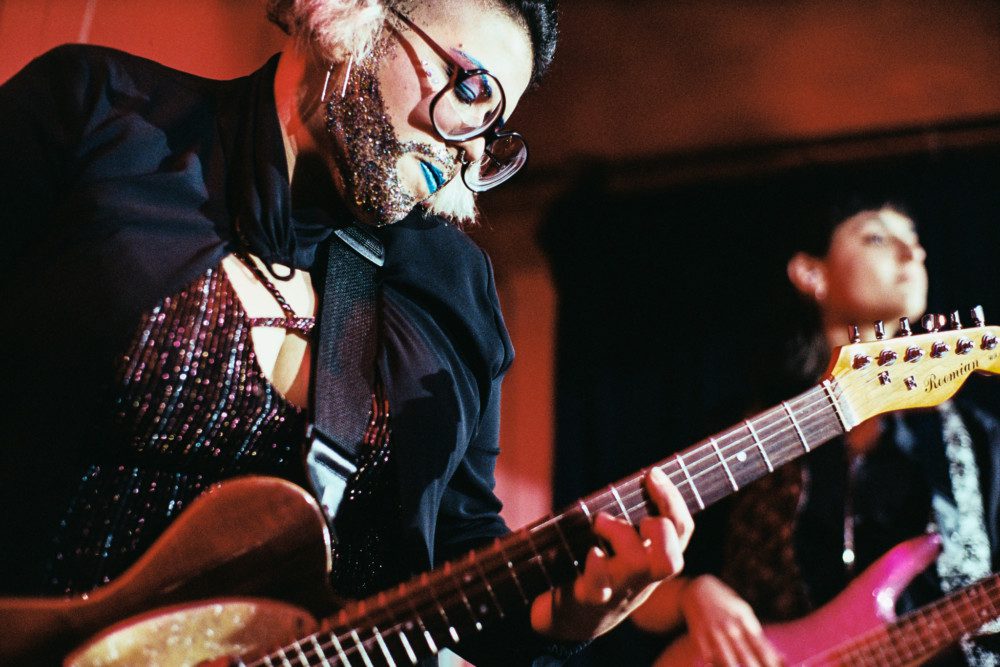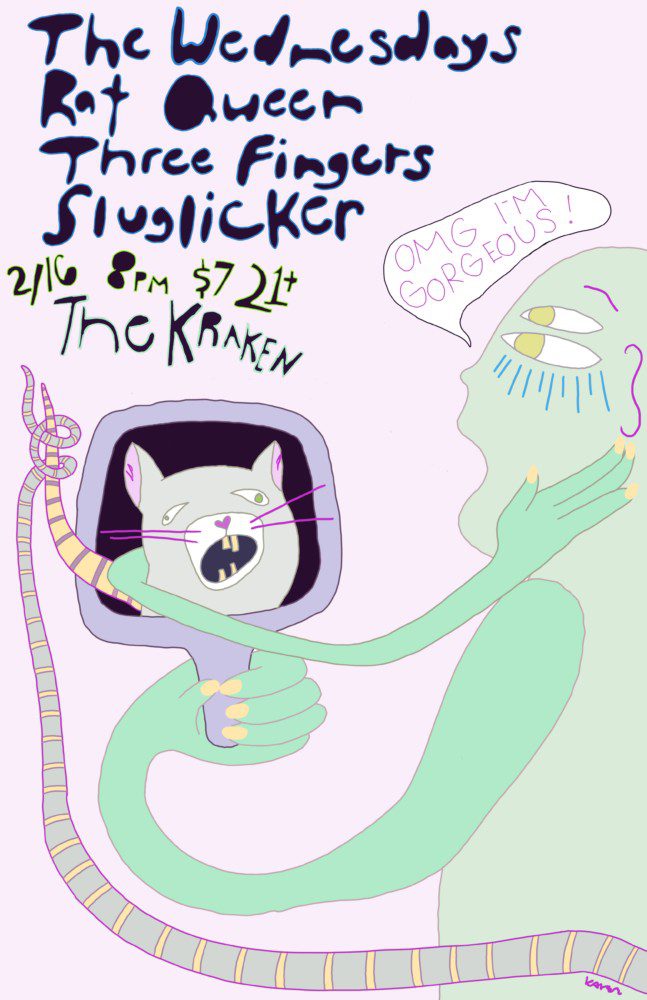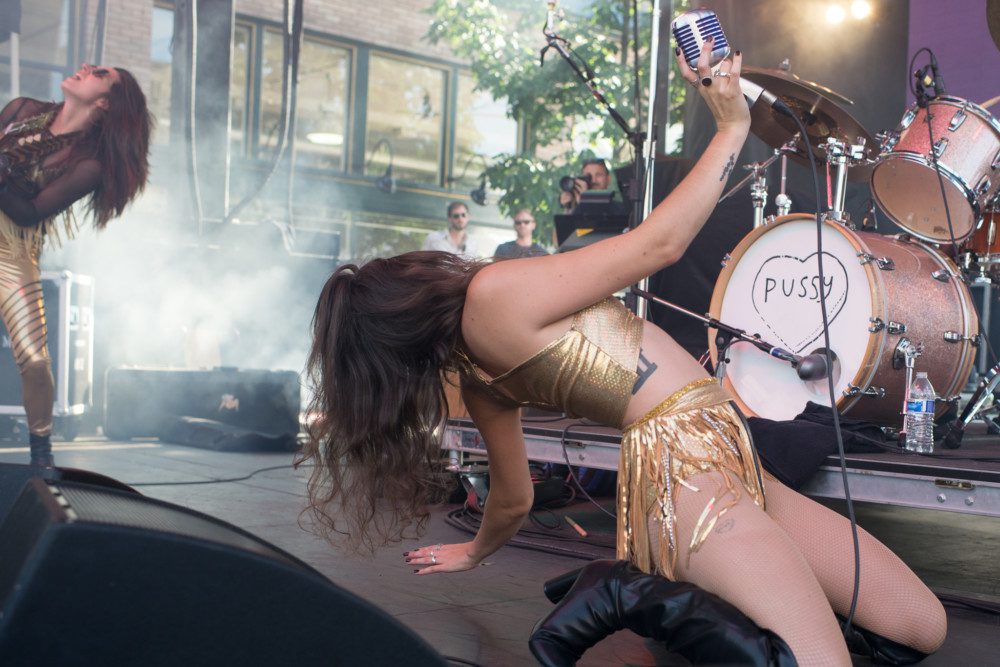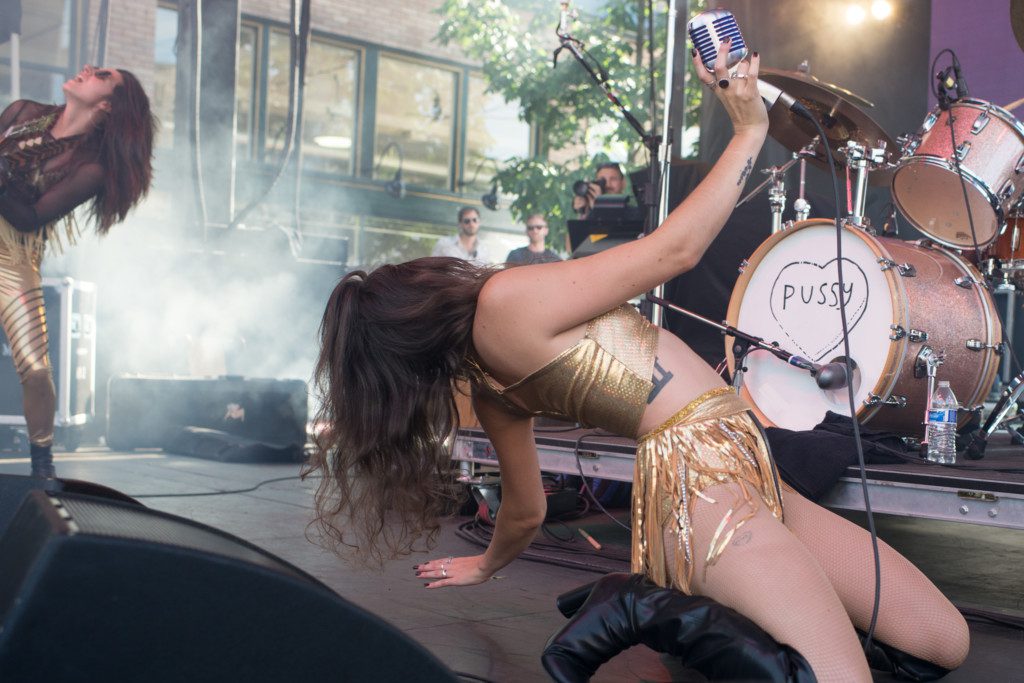Rat Queen debuts fresh evolution on new single “Circle the Drain”
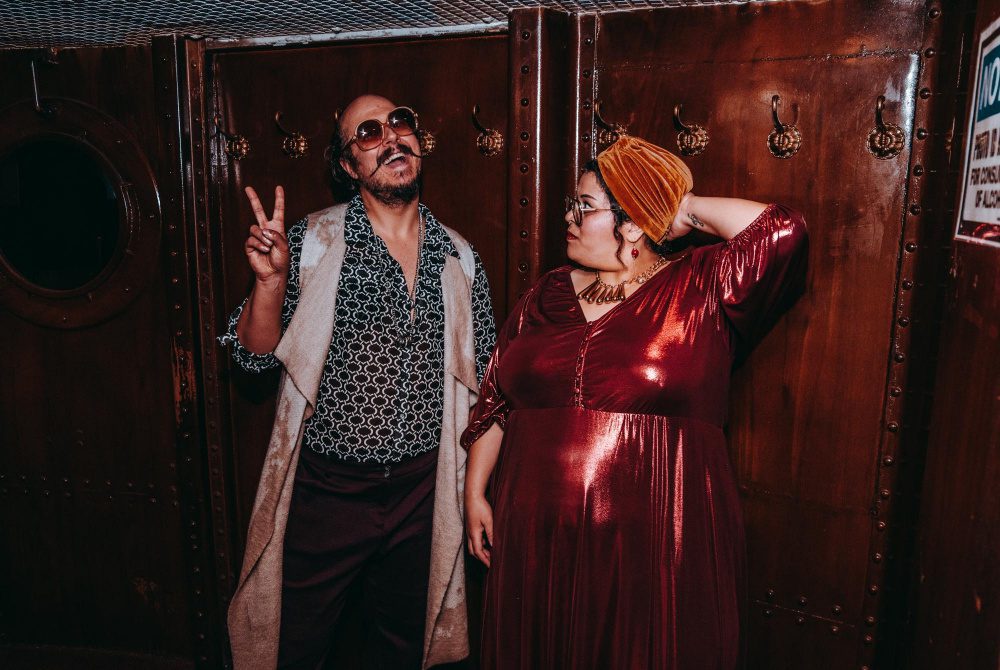

Photo Credit: Andy Perkovich
Most groups disband when a key member moves away. But that hasn’t been the case for Seattle’ Rat Queen, the alt rock brainchild of songwriting partners and best friends, Jeff Tapia and Daniel Timothy Desrosiers.
“My friendship with Daniel is hilarious and unconditional and the most fun and affirming partnership I’ve ever had,” Tapia says. Born organically from that friendship, which has long been about making music together and laughing at “really fucking dark shit,” Rat Queen released their hard-edged pop punk debut LP Worthless in 2018. Shortly after, Desrosiers moved to Los Angeles to pursue a passion for film, but the two worked to maintain their close-knit songwriting partnership long-distance, while also dialing in the line-up of their dream band.
Still chock full of punk irreverence, high energy and dark humor, “Circle the Drain,” the first single off their forthcoming sophomore LP Generational Decay, gives listeners a peek in to a new iteration of Rat Queen, featuring an expanded sound and fresh cast of musicians.
While it was hard when Desrosiers moved to Los Angeles, the two kept up their writing over Zoom, even through the pandemic. Tapia also kept up with the band – just a bass player and drummer at the time, with Tapia on vocals and guitar. But as the pandemic continued, the pair realized that the group, their songwriting, and who they were themselves, had evolved. The songs they were writing called for more instrumentation than their three-piece would allow, and it felt organic to move in that direction.
“I started tracking instrumentals right when I moved to LA, so like October of 2018 or something like that, and then I tend to write in a more maximalist way if I’m writing for myself. I was sending these new tracks to Jeff being like, uhh more instruments?” remembers Desrosiers – namely, they were hearing more synth lines and lead guitar.
So the two pursued adding some fresh faces to the band, eventually settling on drummer Paul Davis, bassist Ana Von Huben, guitarists Jordan Brawner and Sean Leisle, and Naomi Adele Smith on keys. John Adams, a.k.a. Johnny Unicorn, was also a key contributor as a bassist and producer, helping Rat Queen bring the polished sound they’d been hearing in their heads to Generational Decay.
“Worthless is beautifully lo-fi and both Jeff and I wanted something that sounded a little crisper and a little more hi-fi. [I was] really reaching the threshold of my talent or my ability as a mixer and I wasn’t quite getting it to where I wanted it to be,” says Desrosiers. “We asked Johnny to do it and I was like, this is incredible.”
This new line-up also frees Tapia to just focus on their vocals—which soar on the new record and in performance like never before.
“It’s hard honestly to manage a band of six people and also practice guitar all the time and singing all the time,” explains Tapia. “[Focusing on singing] really frees me up to be as energetic as I want to be on stage.”
Tapia, who also writes much of Rat Queen’s lyrics, says a renewed focus on their mental health, and just generally maturing, has also brought a lot of oomph to their approach to Rat Queen.
“Daniel and I weren’t even planning on starting a band. It just sort of happened. At first we were just like, let’s go out and be seen and be drunk pieces of shit – that’ll be so fun! That’s where we were in our lives,” says Tapia. “But I’ve grown into this more – I’ve just matured so much more… As I grow and I change, this writing style that I have also grows and changes with me.”
Darkly ironic in the face of Tapia and Desrosiers’ sunny self-actualization, “Circle The Drain” explores a decidedly jaded (and hilarious) George Carlin bit that Desrosiers, who wrote the lyrics for the song, has considered more and more in the last few years.
“There’s this interview with George Carlin before he died obviously. He was talking about how he had essentially checked out from society. He doesn’t vote, he doesn’t have strong opinions on politics or society as a whole and he’s explaining a term—CTD,” says Desrosiers. “Circle the Drain, like when there’s no hope of saving a patient and you’re just trying to make them comfortable because they’re circling the drain.”
With a laugh, Desrosiers says the term fits the state of the world right now—with, in no particular order, the burden of inflation, all the microplastics in our food, and the gall of Boomers to blame millennials for our inability to get ahead, they thought it was an apt time to use CTD in a song.
Tapia, coughing into the phone after taking a hit on their bong, agrees, adding that it feels like we’re all just trying to live as good a life as possible as the world burns down around us. That’s why they decided to name their sophomore album (which drops August 26th) Generational Decay.
“Honestly you guys, can I tell you a secret? ‘Generational Decay’ is something someone at my work used to describe when you cross genomes together a bunch of times in weed and it’s not even an official term, it’s just something my coworker said and… I thought it sounded relevant,” says Tapia. “I just like that it invokes imagery of like younger generations getting less and less.”
But, that isn’t to say the pair is willing the world to end, either. On “Circle The Drain,” Tapia sings, “But fuck man, I hope I’m wrong, I’ll eat crow,” again reiterating that a dark sense of humor is part of what keeps them both afloat during hard times.
“I think we’ve both been through some pretty horrible stuff and have been able to make jokes about it. Laughing with each other, to the point where it’s hard to breathe, about horrible things that have happened to us, is really fucking beautiful.”
Even if humanity goes down the drain, Tapia and Desrosiers know how to mop up the mess with a laugh and a screamin’ good song. Catch their release show for Generational Decay August 26th at Clock-Out Lounge with local powerhouse groups Actionesse and Black Ends.
Follow Rat Queen on Instagram for ongoing updates.

